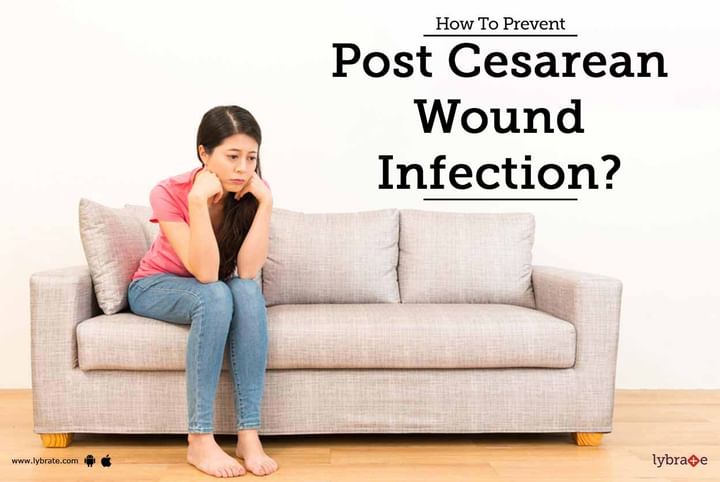How To Prevent Post Cesarean Wound Infection?
Having a baby is nothing less than a dream come true, but it comes with its own share of problems for new mothers. A lot of women today are opting for a C-section, or a Cesarean surgery to deliver their babies. While it is safe for most, at times certain complications can arise as a result of the operation.
As if life for mothers wasn’t tough already, post Cesarean wound infection is another concern some new mothers have to face. It usually occurs due to a bacterial infection in the area where the incision was made during surgery. If you have recently had a C-section, look out for signs in the first couple of weeks such as fever (100.5ºF to 103ºF), wound sensitivity and pain in the lower abdomen area. Other symptoms include swelling at the incision point or in the legs, discharge from the wound, smelly vaginal discharge or blood clots and difficulty in passing urine. If you notice any of these signs, act fast and visit your gynaecologist at the earliest, to avoid complications from the infection.
Why does it happen?
There can be various reasons that an infection happens, just like on any other part of the body where a wound is exposed. Generally, it is more prevalent among obese or overweight women or those taking any form of steroids. Other causes include, an incision closed with staples or nylon sutures, in cases of an emergency C-section, or from an infection of the amniotic sac.
Types and Treatment
C-section wound infections are of two types that is Cellulitis or wound abscess and thrush.
- Cellulitis and wound abscesses are caused by bacteria and are treated with antibiotics. If you’re in the hospital, you will be given the antibiotics intravenously, but if not, they can be taken orally as well. In case of abscesses, the pus is first drained out and smeared with antiseptic before being covered with gauze, after which the wound will heal on its own.
- Thrush is caused by a fungal infection and is normally seen in women taking steroids or in those who have a weak immune system. Anti-fungal drugs are provided to combat the issue.
How can it be prevented?
Here are some things new moms can do to prevent the C-section wound from getting infected:
- Regular follow-up visits with your obstetrician
- Practising good hygiene and healing
- Stay hydrated and drink plenty of fluids
- Avoiding any strenuous exercises that may put pressure on the abdomen area and stitches
- Resting as much as possible
Remember, even if you do develop an infection, it can be treated if addressed in time. New mothers need to take extra care of themselves, as a healthy mom, makes a happy mom!



+1.svg)
